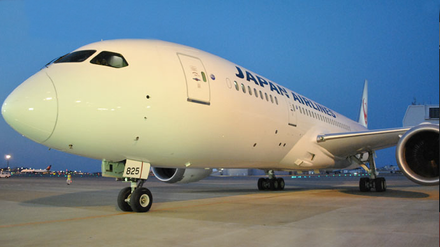
The first of JAL's new fleet of Boeing 787s arriving in Tokyo in March
Marking a swift rebound from its bankruptcy, Japan Airlines (JAL) is now set to raise ¥663 billion ($8.5 billion) from its initial public offering in Tokyo, with listing scheduled for September 19.





